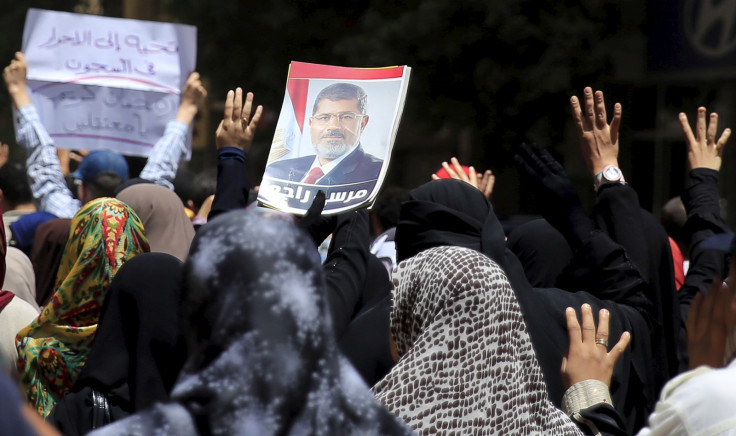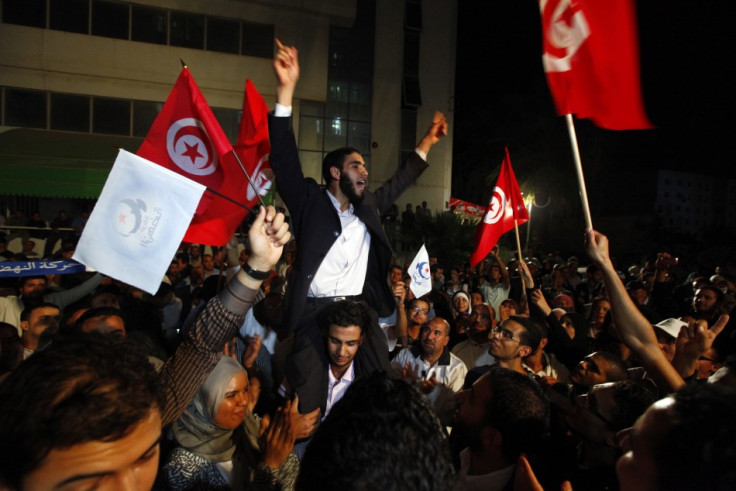The Muslim Brotherhood is a broad church - we shouldn't be naive about it, nor demonise it
Libya, Egypt and Tunisia have all seen very different Islamic political groups emerge.

The British parliament's foreign affairs committee (FAC) does not make policy – and when laws are actually made, the findings of parliamentary committees are advisory at best. Equally, it is rare that senior or influential MPs serve on committees, although occasionally they do.
Nevertheless, these committees play an important role: they serve to hold the executive to account on policy by demanding evidence and explanations from members of the government.
The FAC had an excellent opportunity to interrogate and critique the policy of the Foreign Office when it came to 'political Islam' and specifically the Muslim Brotherhood in the review ordered by former prime minister David Cameron in 2014 and finally released in late 2015.
It was far better informed than past major FAC reports, including its offering on Libya, which failed to take testimony from a single Libyan - or indeed most Libya specialists, perhaps explaining some of its more controversial findings.
I've long argued that Britain's dealing with political Islamists should recognise that Islamism has many faces and that we must learn to read them all. The vast majority of Islamists should be engaged within the broader political framework even if they hold problematic opinions, including according to the standards of their own societies and Muslim communities.
In that regard, the report is commendable for advising a nuanced understanding of the various types of political Islamist, recognising that there is no 'one size fits all'. It also at least attempts to give a set of common standards for engaging with all political Islamists.
It suggests that three requirements be at the root of such engagement: Firstly, participation in and preservation of democracy, support for democratic culture and a commitment to give up power in the case of an election defeat. Secondly, an interpretation of faith that protects the rights, freedoms, and social policies that are broadly congruent with UK values. Thirdly, a fundamental commitment to non-violence.
It's not that hard to be that nuanced – it's just common sense.
The second item is rather peculiar, in that its meaning is unclear. How does one define 'broadly congruent with UK values' and who decides if that definition sticks? More importantly, do we apply the same standard to non-Islamist movements as well? If so, then a lot of governments we currently engage with ought to be very nervous.
Of course, they're not nervous at all. In an ideal world, perhaps they would be – and should be – but they're not. Our relations with other states isn't defined by how much they are 'congruent with UK values' – and no one truly believes they would be.
As the most mainstream Islamist group, the Muslim Brotherhood received a great deal of attention in the FAC review, and their points of view were provided repeatedly and expertly in written and oral evidence. This is to be expected, the Muslim Brotherhood was the subject matter, broadly speaking, and it is right that the group was given ample opportunity to express its opinions. But the nuance of critiquing those views probably could have been done a little bit more in depth.
The fact is, the Muslim Brotherhood is not a single movement. The MB universe is, in its entirety, the product of a modernist and thus somewhat non-normative approach to Islam, beginning in the early mid-20th century, which partially explains the antipathy much of the mainstream religious establishment in the Muslim world has towards it. But beyond that commonality, there is a lot of diversity and difference.
These range from the Palestinian version of the Brotherhood, Hamas, which has been accused of targeting civilians, to the Tunisian inspired group of Ennahdha, which has been credited with a great deal of pluralism. The bulk of the movement is conservative and reactionary, owing to its origins in different places (usually in response to repression of some sort or another) but in such a large movement that still allows for a variety of experiences. They all need to be critiqued, without prejudice.
When it comes to the commitment to give up power after an election defeat, for example, the Muslim Brotherhood in Egypt was never tested. No-one can say there is evidence it would not have relinquished power, as it was overthrown in a military coup in June 2013. In Tunisia, Ennahda stood down after losing elections 2014, a very positive development for the mainstream Islamist movement there.

In Libya, the Muslim Brotherhood movement was aligned with networks of extremely radical Islamists, in the context of internal Libyan politics, and rejected the outcome of elections alongside their allies. In Jordan, the movement has been respectful of the democratic process – and so forth.
To criticise the Muslim Brotherhood in 2016, particularly in Egypt, is not to criticise a group that has power and influence. On the contrary, it is the Muslim Brotherhood's enemies that possess that power and have used it to engage in a wide-ranging crackdown against its members.
To then critique the group can be politically and arguably ethically awkward, unless done with a sense of very specific and delicate deftness. The Brotherhood itself welcomed the report – which probably isn't the best of signs. Cairo's establishment was rather critical of the report, but that is to be expected, considering the prevailing lack of nuance that exists on such issues.
The report is by no means the final word on this topic – and doesn't claim to be. But there is certainly much work to be done – and that will continue far beyond this report. Political Islamism needs a robust and forthright kind of engagement, that does not fall into the trap of assuming all political Islamists are the gateway to al-Qaeda, nor that they are automatically the Muslim version of the Christian Democrats. It's not that hard to be that nuanced – it's just common sense.
Dr HA Hellyer is senior non-resident fellow at the Atlantic Council and the Royal United Services Institute in London, and author of 'A Revolution Undone; Egypt's Road Beyond Revolt'. Follow him at @hahellyer
© Copyright IBTimes 2025. All rights reserved.






















